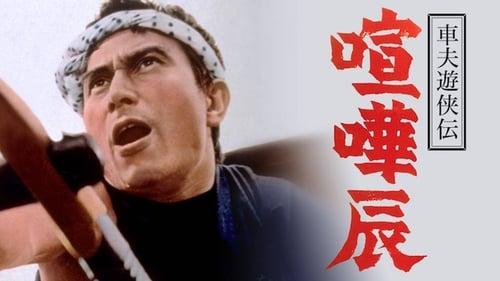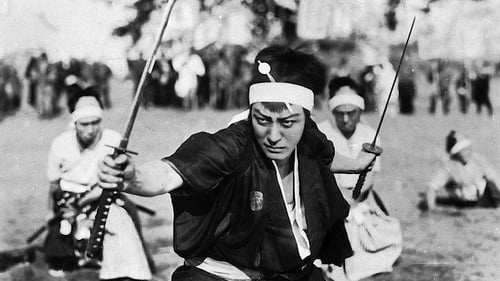
Original Music Composer
Richshaw man Tatsu has wandered to Osaka from Tokyo. He has quarrels with Kimiyakko, a geisha, and throws her into the river. But later, he falls in love with her. Yasaburo, the oyabun of the Nishikawa Gang, loves her very much too. However, as he likes Tatsu's dynamic personality, he volunteers to become a go-between for their marriage. Yasaburo gets tipped off by Yajima who wants to take over the territory of the Nishikawa Gang, and is arrested and imprisoned. After his release, Yajima tries to kill him. Ginjiro, a lover of Tamaryu respects Kimiyakko as an older sister and a follower of Tatsu, is murdered. After the third marriage ceremony just between Tatsu and Kimiyakko, Tatsu goes off to the place of fighting.

Music
Jidaigeki by Tai Kato

Original Music Composer
Bloody Account of Jirocho: Duel at Fujimi Pass

Original Music Composer

Original Music Composer
Early film by Eiichi Kudô.

Music
Jidaigeki by Tai Kato

Music
Tai Kato's first film directed at Toei.

Music
Ninja film by Tai Kato

Music
Early jidaigeki by Tai Kato.

Music
The tale of Nakayama Yasubei’s duel is famous, even if he in reality probably did not cut down 18 opponents. The story has been related in film, rakugo, kodan and on stage many times, in part because Nakayama later joined the famous 47 Ronin (Chushingura) as Horibe Yasubei. But Makino and Inagaki’s version gives no hint of this more serious future, playing up the thrills and the comedy with Bando’s bravura performance. The multiple pans of Yasubei running to the duel are an exemplar of the experimental flourishes of 1930s Japanese cinema and the final duel, performed virtually like a dance number, is a marker of Makino’s love of rhythm and one of the best sword fights in Japanese film history. The film was originally released under the title Chikemuri Takadanoba (Bloody Takadanobaba) with a length of 57 minutes, but suffered some cuts and a title change when it was re-released in 1952.

